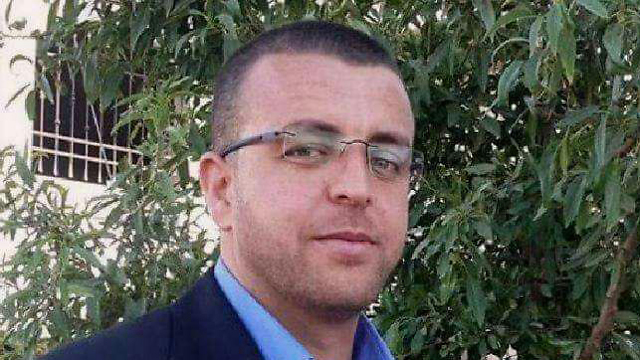

Israel's anti-democratic administrative detention policy
Op-ed: Israeli security services arrested a Palestinian journalist without indictment; after a 94-day hunger strike, an agreement was struck to free him, but future hunger strikers will continue to challenge Israel's anti-democratic administrative detention policy.
Israel is the sole democracy in the Middle East. If the security forces make an arrest, there must be a reason. Thus, Israel can arrest a person for six months, the length of Al-Qiq's detention. But if Israel wants to, it can extend his detention again and again without an indictment, a trial, or family visits.
Why? Security officials argue that Al-Qiq was arrested for his involvement in "recent military activity." His relatives claim that he was arrested for his articles in the Palestinian press. Which version is correct? Al-Qiq has not been indicted since the start of his administration detention. If evidence against him exists, it is confidential, as all materials used for his arrest indicate. Why? Our democracy works in this manner. What the army, police, and Shin Bet say is sacred.
The most hated criminal also deserves to hear his indictment and receive a trial. Until then, he is not a criminal and should not be punished. If the authorities fail to present an indictment against him, he deserves to be freed. Why? Because that is how a legal system works in a democracy. And no, the army's, police's, and Shin Bet's answer does not suffice. Since the beginning of his hunger strike, all Al-Qiq requested was to be charged or set free. The authorities refused. Why? That is how the system works. So what?
Then, we were informed that Al-Qiq and the Israeli security services had reached an agreement to set him free on May 17, 28 days before the expiration of his administrative detention. Why, exactly? Six months of administrative detention were enough? Why did they agree to release hm four weeks early? Is Al-Qiq not involved in "recent military activity?"
The Shin Bet only said that "if no new intelligence is received regarding his case, his circumstances will not change and his administrative detention will not be renewed." Wait, why not release him today? Is something going to happen at the beginning of May, at which point Al-Qiq will no longer pose a security threat? Why did the security services originally request a six-month administration detention instead of five months?
I am asking irritating questions. Indeed, it is clear that the authorities arrested him because they arrested him and they will free him because they will free him. If the security services say so, they know. The same thing will happen when the next administrative detainee goes on a hunger strike. Wait, there already is someone else striking. He is 23-year-old Mahmoud Al-Fasfous, who was arrested more than 18 months and still has not been indicted. All right, is he another Arab from the territories? Well, he is definitely a terrorist. If the authorities arrested him, they know why.
How fortunate that we live in the only democracy in the Middle East and not in Soviet Russia or Pinochet's Chile. There, they arrest people for no reason.
















